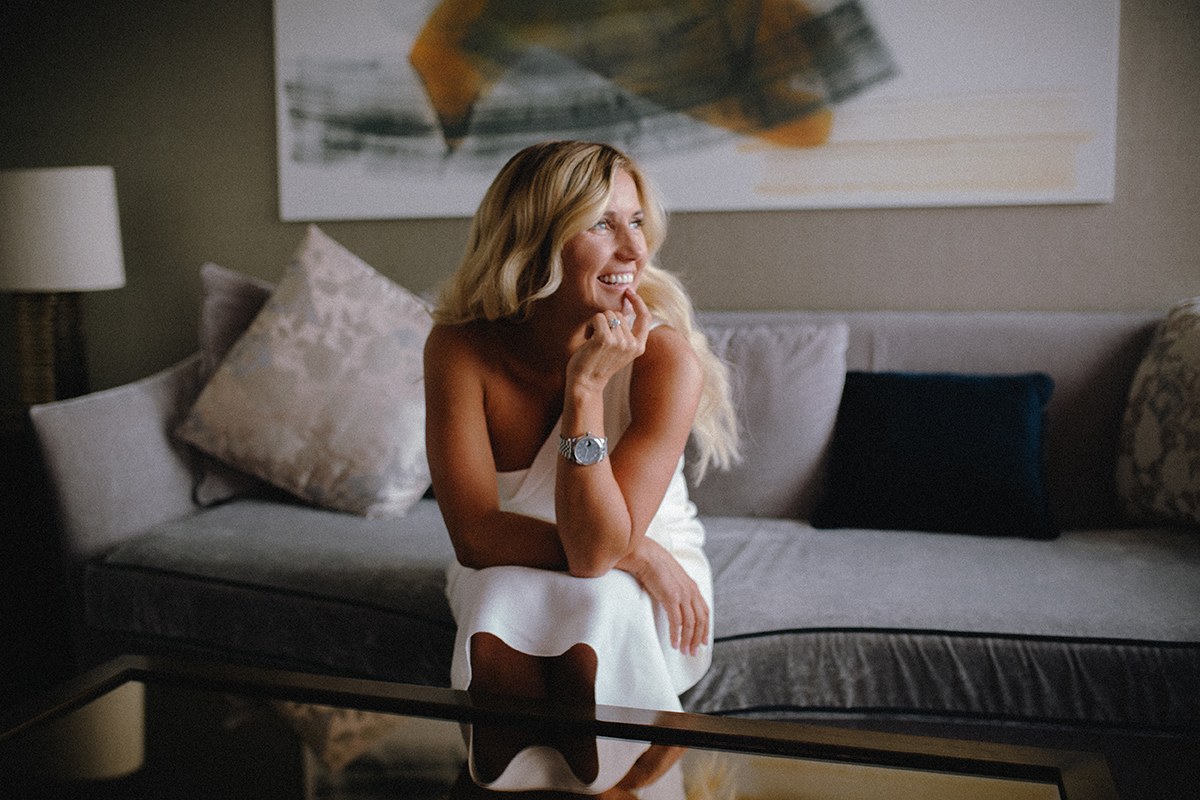
Katrina Aleksa Ryemill is a co-founder of Association of Women In The Arts
Non-profit organisation Association of Women In The Arts was founded with the ambition of providing a networking and mentorship platform for women working in the arts in the UK. Since the pandemic, their membership has expanded globally with a new online programme. As part of our ongoing philanthropy series, Samantha Welsh speaks to the organisation’s co-founder Katrina Aleksa Ryemill about the importance of a professional support network, adapting to a digital world and expanding globally
LUX: Tell us about the Association of Women In The Arts, and why is it already such a powerful organisation?
Katrina Aleksa: Since our beginning in February 2016, AWITA’s main focus has been to bring the inspirational women working within the art world together, and this remains our core strength to this day. AWITA’s membership includes gallerists, curators, art advisers and academics as well as auction houses, museum, public sector and art fair professionals.
Follow LUX on Instagram: luxthemagazine
Quite simply our members are our key strength and what makes us the powerful organisation that we have become. For so long there was no place where women, who are underrepresented in top positions in the art industry (as they are in many others), could unite, network and help each other in a safe and positive environment. AWITA provides just that, and every time another fantastically talented woman joins our network we become stronger, better represented and more powerful. Leaders across the art world can share and collaborate in a safe way. We adapt and pivot very quickly to changing times the current crisis is just one example of it. Quite simply, we are stronger together.
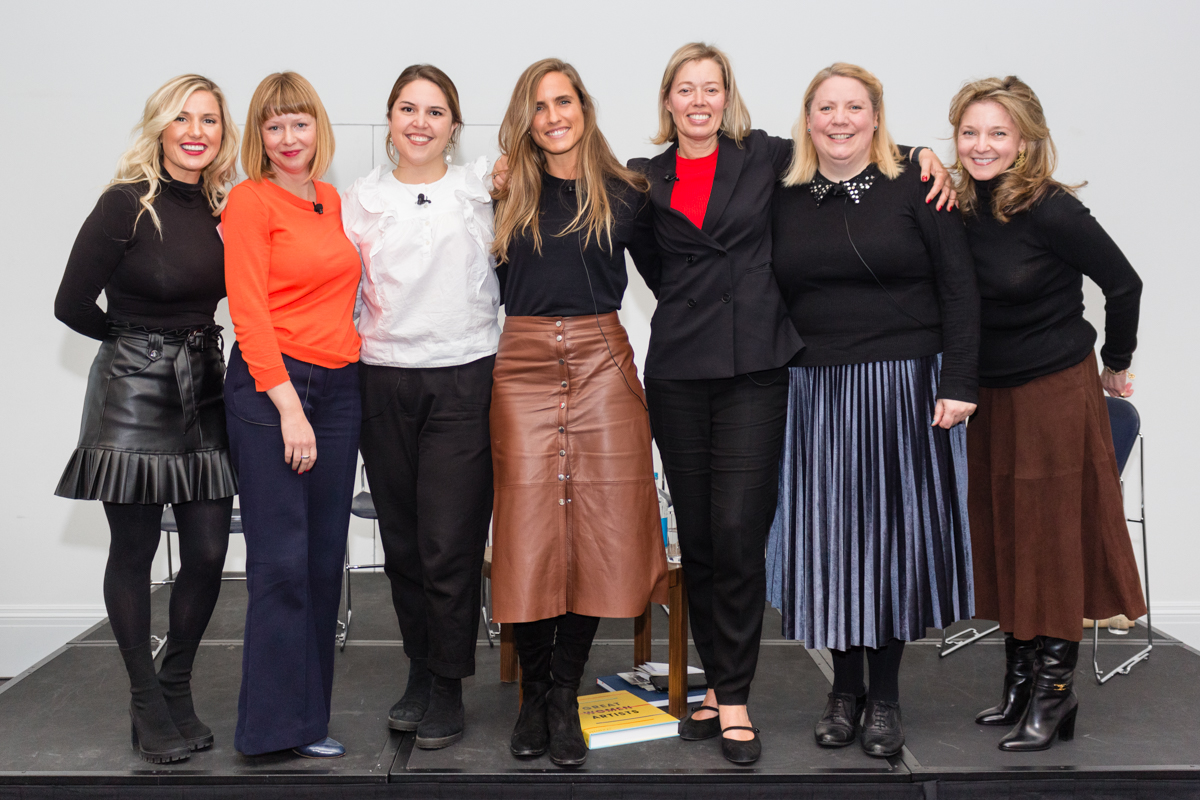
AWITA Great Women Artists: why women? panel discussion at Sotheby’s London in partnership with Phaidon. From left to right: Katrina Aleksa Ryemill, Harriet Loffler, Marina Ruiz Colomer, Wells Fray-Smith, Mary Findlay, Rebecca Morril, Kate Gordon. Photograph by Pedro Lima
LUX: What experience and expertise do you look for in your members?
Katrina Aleksa: AWITA is a non-profit membership organisation open to women with a minimum of five years’ experience in the art world. We want gallery owners to connect with curators, arts journalists to connect with dealers, art advisors to meet academics in a lively, informal atmosphere. We believe in collaboration over competition, and want the membership to include as many different voices as possible.
LUX: AWITA is already the most connected network in UK for women in the visual arts, what do you think attracts women who are already influential in their fields?
Katrina Aleksa: Honestly, I think it’s the calibre of women who are already in the network. It’s a safe place to grow and share and ask questions. I think at whichever point somebody may be in their career, you still have questions even if you have been in art world for 20 or 30 years. Of course the questions may change as people advance through their careers, but many of the topics and challenges are the same.
Additionally, the nature of the art world, where creativity is at its core means that it constantly changes and challenges itself, arguably more than any other industry. Therefore, anyone working in the sector must also ensure they stay relevant and current, which means challenging, developing and growing your own thinking, and a network can really help with this. Nothing stays still for very long in the art world.
Of course, there is also the fact that women in senior roles can often feel alone due to their under-representation – so many pieces of research have shown that women crave a network of peers, which of course is what AWITA is.
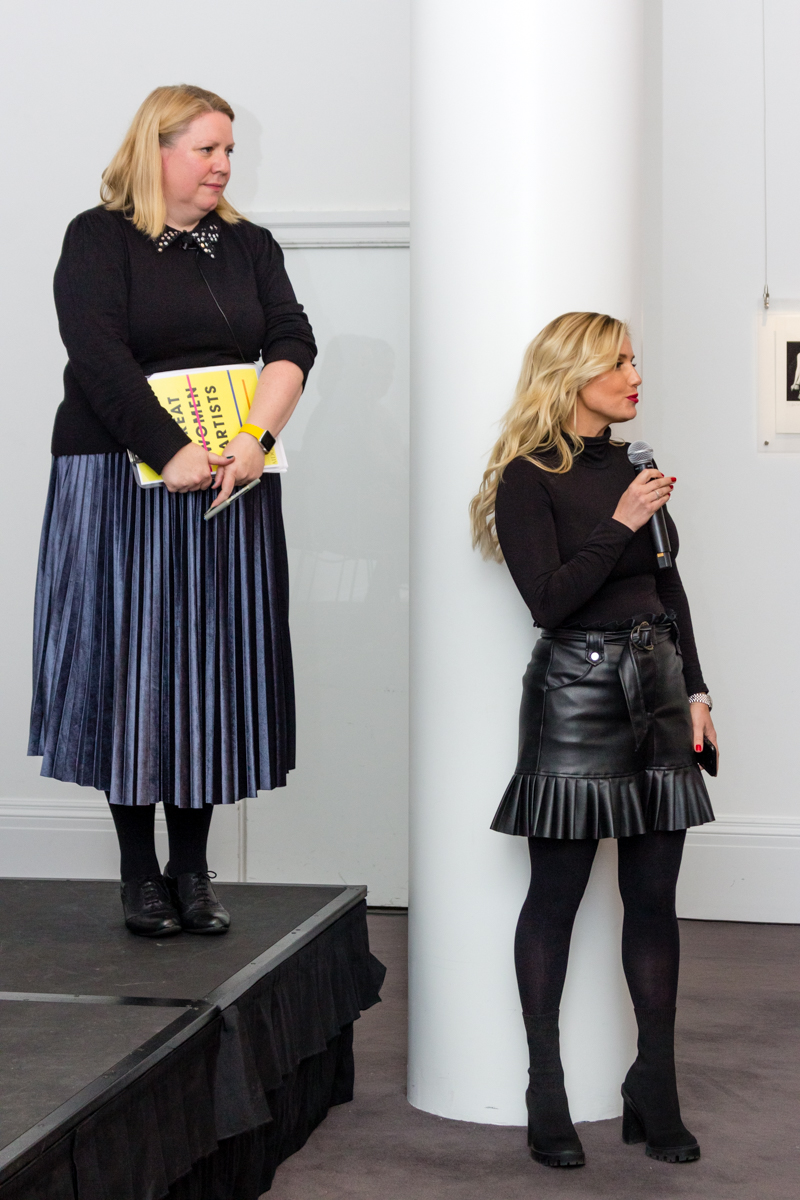
Rebecca Morril and Katrina Aleksa Ryemill (right) at the AWITA Great Women Artists event. Photograph by Pedro Lima
LUX: Do you have strong representation from non-UK based membership?
Katrina Aleksa: This is actually something completely new to us, not to mention very exciting. Ever since we set up there have always been a number of international applicants wanting to join and also numerous people who have wanted to set up AWITA entities in their local countries. However, whilst we always have wanted to do this we simply haven’t, until now, had the resources to expand internationally.
Read more: How sustainable knitwear brand Aessai supports female craft collectives
We have, in many ways, really benefitted from the pivot we needed to make during these unprecedented times. Whilst we were very UK and London centric, organising some wonderful events that our members would attend and enjoy, the pandemic has meant that we had to move all of our events online. No longer were we “restricted” to the UK and predominantly London-based events that we were offering. We are now able to reach incredibly inspirational women across the globe that we would of not been able to do locally in London. Our membership has expanded internationally as result of that and I’m so proud that our international membership group is now the fastest growing aspect of AWITA.
LUX: What real life platforms are you working on at the moment?
Katrina Aleksa: We have recently launched a partnership with Cromwell Place, which is a first-of-its-kind exhibition and working space for galleries, dealers, collectors and art professionals seeking a presence in central London. With creativity, connection and collaboration at the core this partnership amplifies our mission and values.
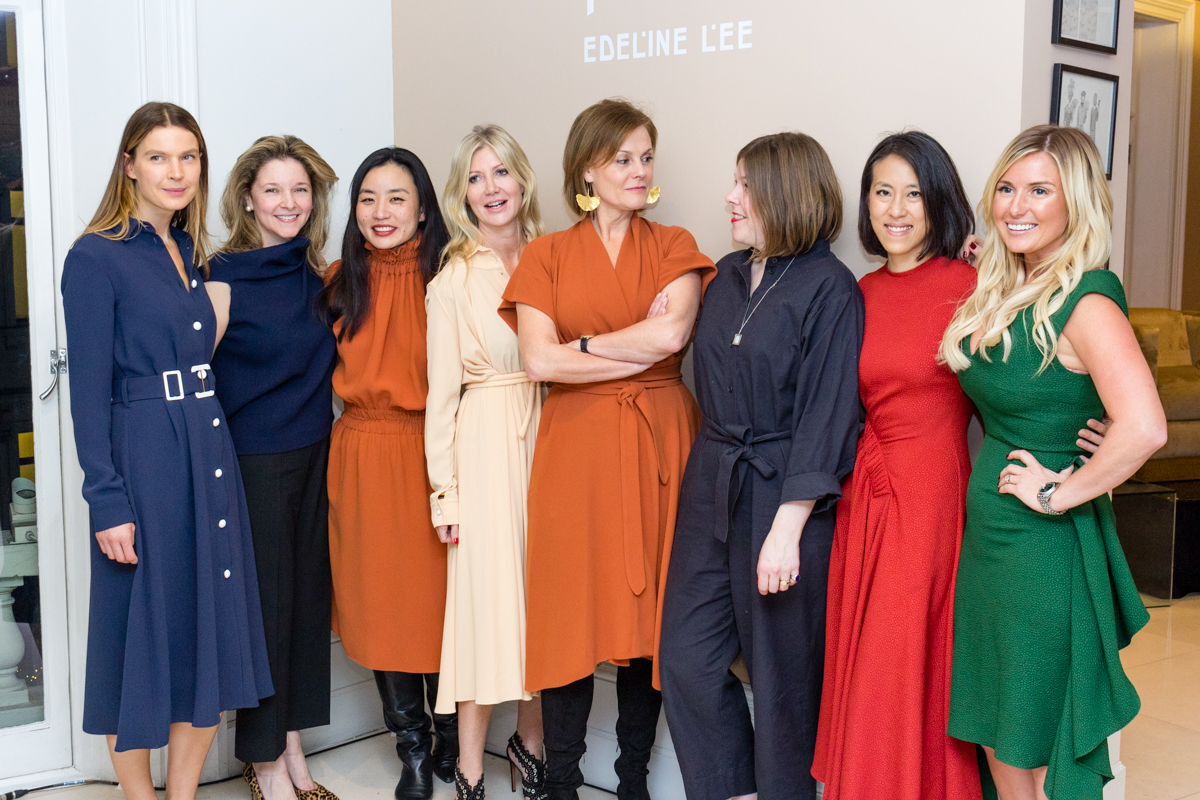
Dressed for the art world AWITA event with Edeline Lee at Fenwicks London. From left to right: Indre Serpetyte-Roberts, Kate Gordon, Edeline Lee, Sigrid Kirk, Polly Robinson Gaer, Linsey Young, Helena Lee, Katrina Aleksa Ryemill. Photograph by Pedro Lima
LUX: During Covid, AWITA has turned adversity into advantage by running a series of hybrid events. What works well for live-streaming, and will you continue to exploit this format post-Covid?
Katrina Aleksa: Absolutely! I actually think that this “hybrid model” where the event is both online and ‘in person’ has huge potential to continue to ensure that we are offering a more inclusive model for our members around the world, whilst also offering what so many of our members crave: an in person experience immersed in the art world, surrounded by like minded art professionals.
Read more: Jazz legend Abdullah Ibrahim’s guide to Cape Town
That said, I think the mood from everyone, not just our members, is that we have all now overdosed on “zoom” already. So the challenge is making the authentic and positive experience of our online programme running alongside our live events. I don’t think we will ever return back to being 100% online or offline, I believe the future and certainly 2021 will be a balance between both.
LUX: You have also focused on creating digital content – what kind of conversations has this facilitated?
Katrina Aleksa: We are still learning. My favourite quote is ‘flying a plane while building it’ and this is exactly what we are doing right now. We have had a tremendously positive response from our members, but we need to keep it up, not rest on our laurels and keep adapting to changing times.
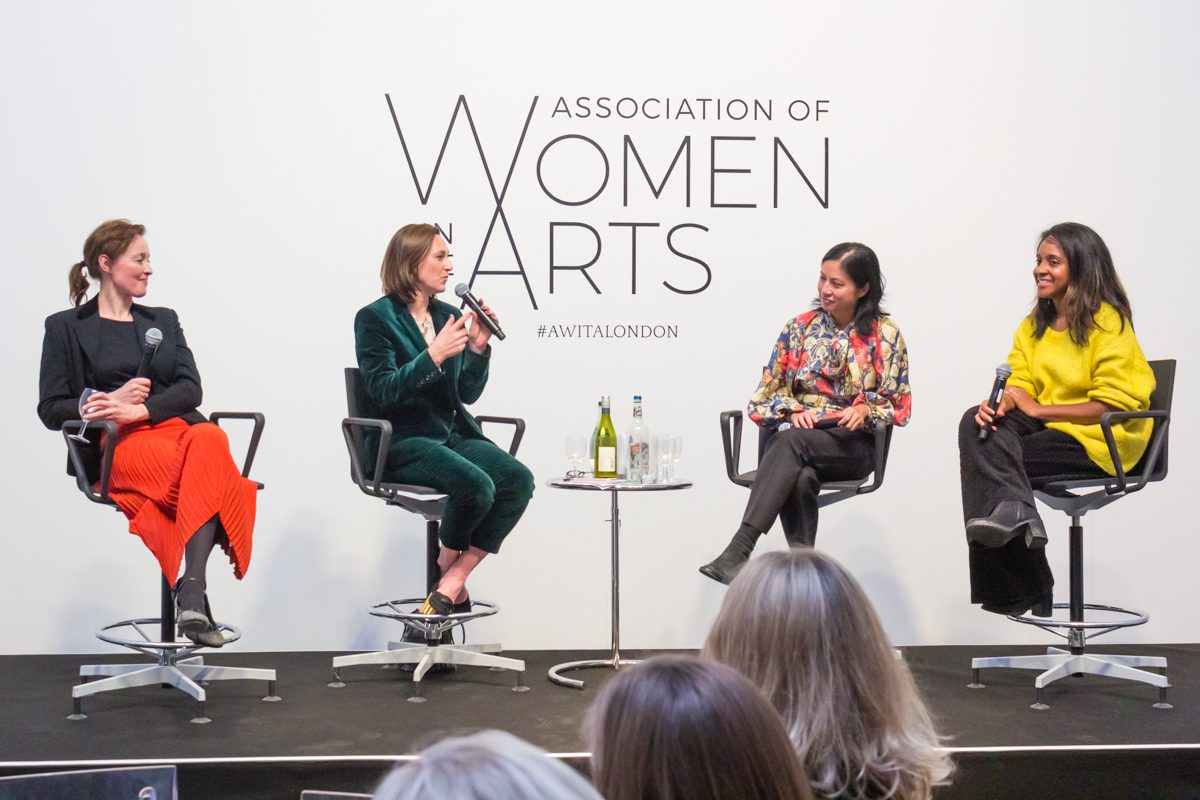
Finding Balance: How to thrive in a 24/7 world panel discussion with AWITA at Phillips. From left to right: Catherine Blyth, Jo Stella-Sawicka, Angela Choon and Dr Zoé Whitley. Photograph by Pedro Lima
LUX: Have perspectives and priorities altered in 2020?
Katrina Aleksa: I don’t think there has been anyone who hasn’t been affected by current health crisis, whether you are in or outside of the art world, or whether you are an employer, an employee or even self-employed.
We, of course, had to adapt and pivot to be able to stay ahead of the curve and support our members. It was a priority for us to support our members, in whichever way they needed help or advice. We even instituted a very casual weekly coffee morning, online, which some of our members described as a lifeline, and a welcome break from home-schooling.
LUX: How have collectors adapted to this changed world?
Katrina Aleksa: I love that the art world hasn’t stopped! Whilst it has been very challenging for many people, I have also seen some people really flourish. Whether that be artists that were “breaking through” or professionals who were taking on new challenges, there have been many positive stories that we should all look at for motivation and inspiration. Of course, it is a challenging time and my heart goes out to all of the people who have been ill or have suffered losses during this difficult period, but the world keeps turning and art works have been bought and sold. Many online auctions have been showing a great increase in their results and like many other online businesses have really thrived. I always say, change is always happening and like in nature, the ones that are able to evolve and change are ultimately best positioned to survive and thrive. This pandemic has, in my mind, just presented a sped-up opportunity for change.
LUX: What sort of political or cultural partnerships are your members potentially exploring and can AWITA reach out to their sisters in parts of the world where women’s talents and voices are stifled?
Katrina Aleksa: It’s important to continue to build networks. We are talking to women in organisations around the globe and will be concentrating on leadership and new structures and models. We are concentrating on finding innovative and useful ways to keep the important conversations that need to be had going. While we may not be able to see each other in person, we can still stay connected.
LUX: What are your next plans?
Katrina Aleksa: With the huge increase across our membership we are finding that we are now able to represent more women than ever before, looking at tackling so many diverse challenges and opportunities around the art industry. Every new member we have ensures another voice and another way of thinking, so we will continue our growth drive – adding women into our network from all over the globe and then empowering them through more mentoring, networking and professional development.
Find out more: awita.london
Samantha Welsh is a contributing editor of LUX with a special focus on philanthropy.


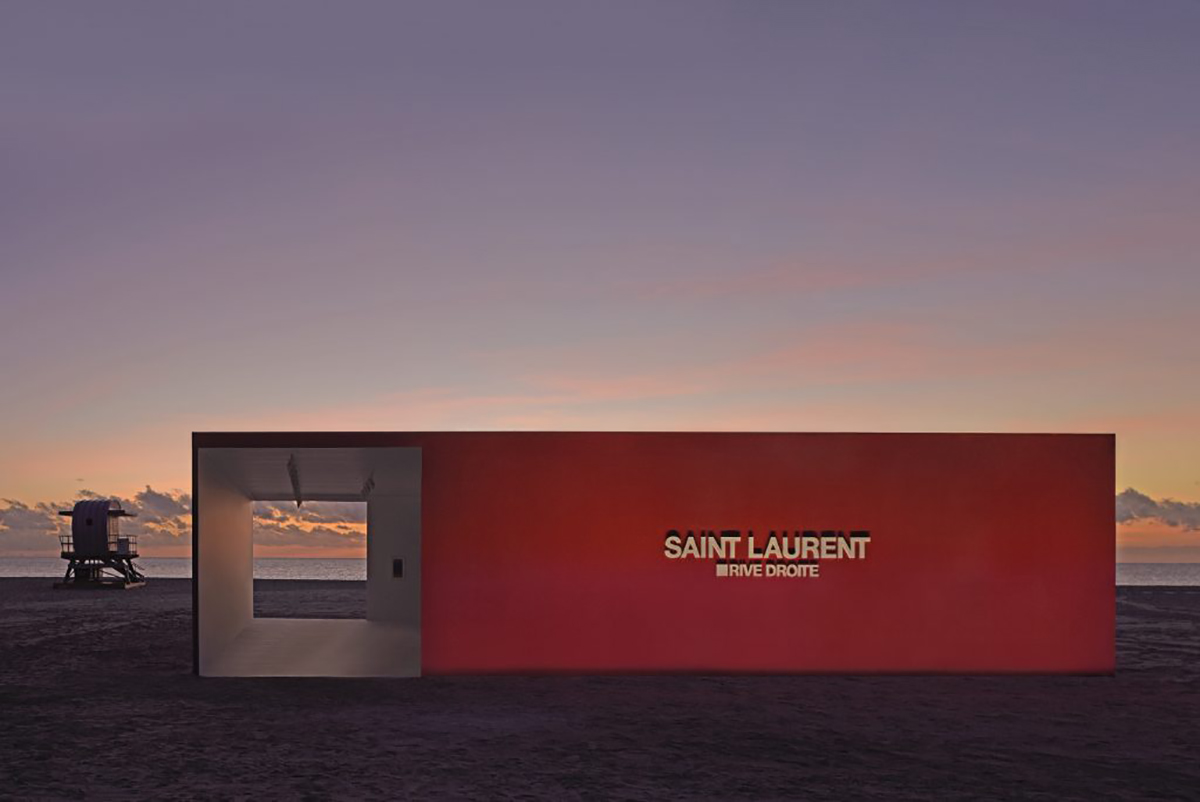



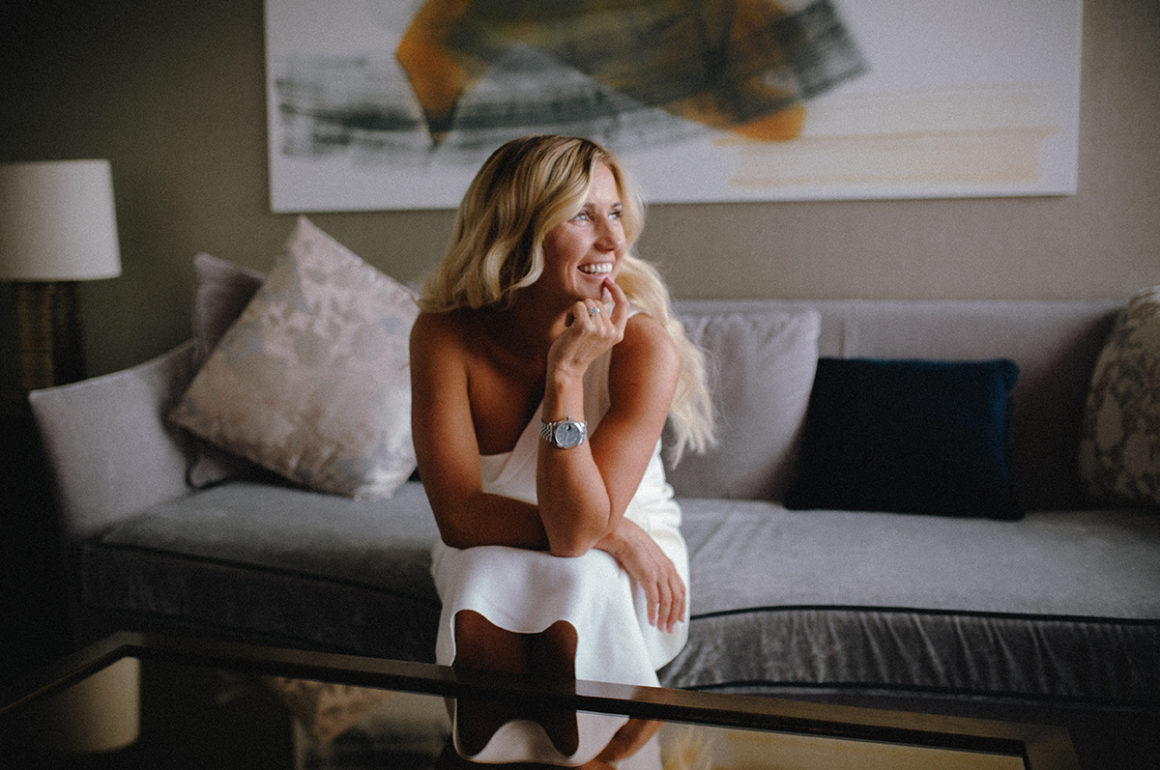










Recent Comments